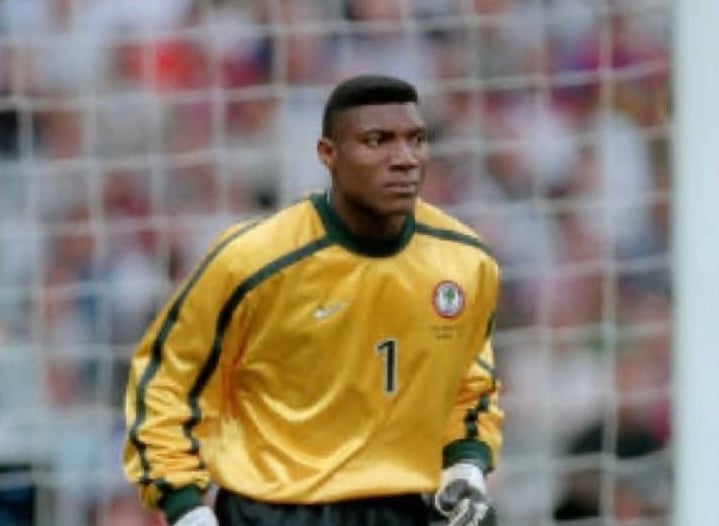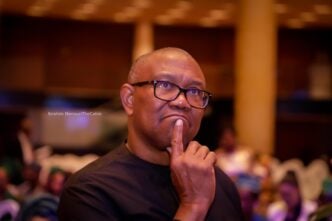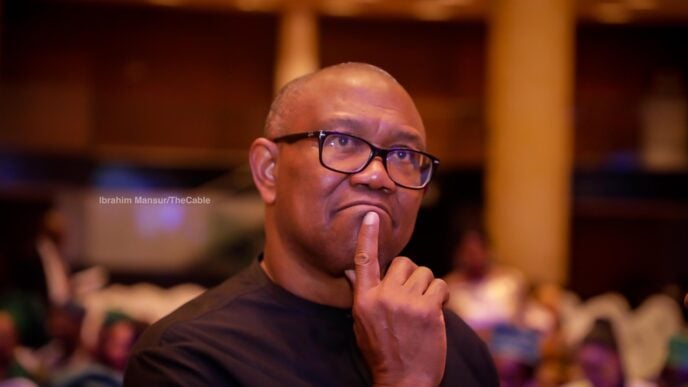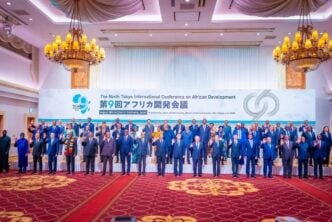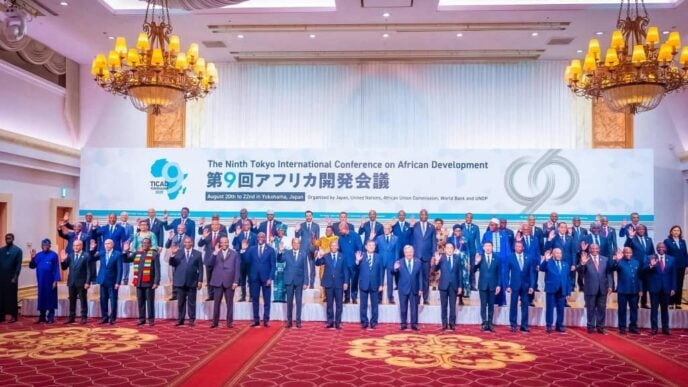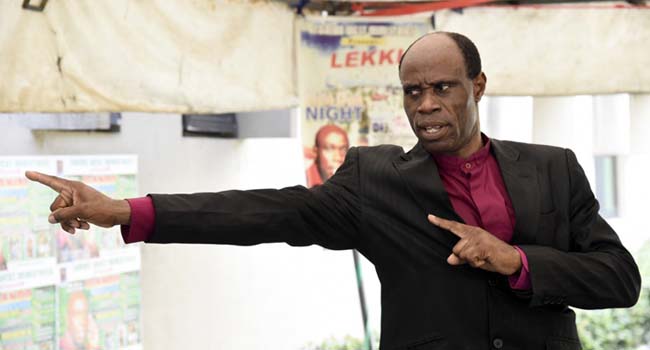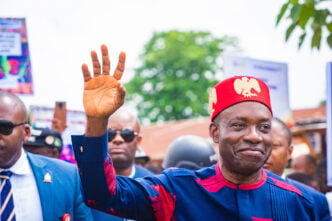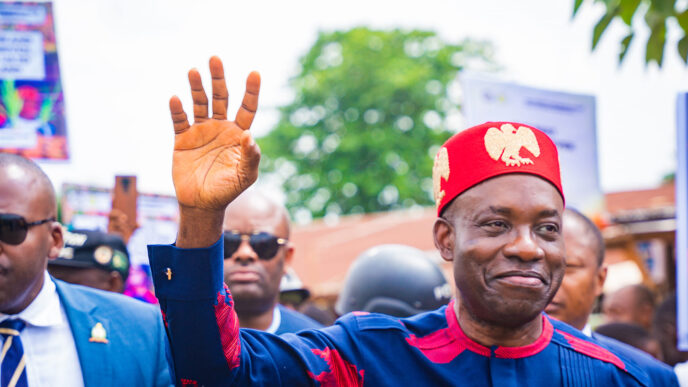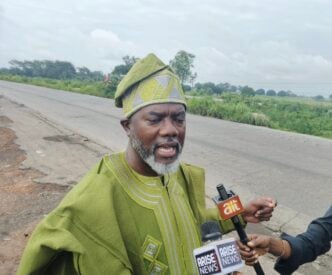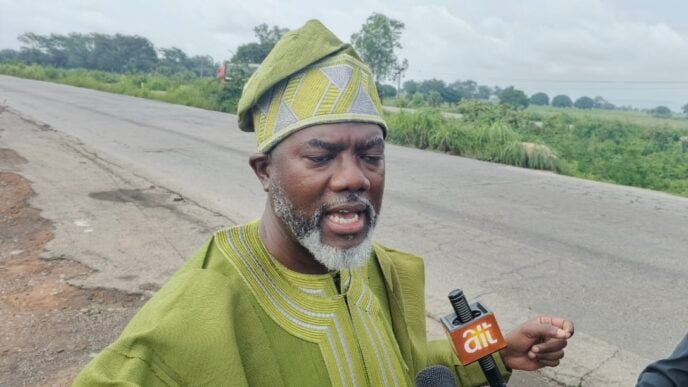Peter Rufai
Peter Rufai’s burial has, once again, exposed the festering wound of entitlement among Nigerian athletes. Taribo West, a former Super Eagles and Inter Milan defender, lamented that a “national hero” was abandoned, leaving his family to bear the funeral burden. But let’s be brutally honest: this is not a government problem; it’s a personal responsibility problem.
At their prime, Nigerian footballers earned millions of dollars in Europe, cashed generous camp allowances, and even received jaw-dropping presidential windfalls, like the $100,000 Bola Tinubu recently gifted the Super Falcons and D’Tigress. As though that is not enough, recent revelations made us understand that they got rewarded for a job that they never did. That was in 1996, when the late maximum ruler, General Sani Abacha, used the country’s non-participation in the AFCON hosted by South Africa to massage his ego. He prohibited the Super Eagles from defending a title they won two years earlier in Tunisia, where they were hot favourites to win. He, reportedly, paid them a princely sum of $20,000 each, without kicking a ball. Yet, many of these stars lived as if the tap would never run dry. Luxury cars, endless entourage, lavish parties, frivolous spending—no plan for tomorrow. When the dollars stopped flowing, the cheering vanished.
Now, instead of owning their mistakes and taking responsibility, some expect the government, the NFF, or the NSC to act as their pension fund. That is not only irresponsible—it is also insulting to the sensibilities of millions of Nigerians who work and live on a ₦70,000 minimum wage (or even less) and also to soldiers and other security personnel who daily risk their lives fighting terrorists and bandits without getting a tiny fraction of what these athletes once pocketed. Who deserves more sympathy—the footballer who squandered his millions or the soldier who dies defending the nation, leaving nothing behind for his family? What about civil servants who serve meritoriously for 35 years, receiving peanuts as salary, and then have to retire on a monthly pension that is even lower than the salary?
Let’s call it what it is: waste, poor planning, and an entitlement mentality dressed up as national neglect. The government’s role is not to bail out undisciplined millionaires but to create policies that make financial literacy compulsory for athletes to thrive post-retirement. The rest is up to them.
Advertisement
The hard truth? Stardom is temporary. Salaries stop. Fame fades. What remains is what you built with your hands and managed with your head. If you blew it all up, don’t ask the taxpayers to clean up your mess. If the federal government were to do that to all who had the privilege of serving the nation in one capacity or the other, the country would, in no time, go bankrupt.
Let’s examine some salient issues in the world of the professional athlete’s career in the context of a career trajectory that sees their proverbial palm kernel cracked for them by their “Chi,” in the words of the late Chinua Achebe.
1. The Privileged World of Professional Athletes
Advertisement
Nigerian athletes, especially footballers, belong to an elite class of citizens who enjoy rewards far beyond the reach of an average Nigerian. During their active years, they earn staggering sums from European clubs as salaries and endorsement deals, in addition to national team bonuses and camp allowances, whenever they are invited for national team assignments. For instance, President Bola Tinubu recently awarded each member of the Super Falcons and D’Tigress teams that won the 10th WAFCON and 5th consecutive AfroBasket in a row, respectively, $100,000 and a house in Abuja for the continental victories. This is in addition to the prize money from tournaments’ organisers. Like the $1 million the Super Falcons received from the organisers – the Confederation of African Football (CAF)—for winning the African Women’s Cup of Nations, 30% of which went directly to the players. Similarly, the 1994 Super Eagles squad received three-bedroom bungalows in Abuja and national honours. Some of them were not lucky enough to be alive to receive the promises, but their relatives would do so on their behalf. The national women basketball team, the D’Tigress, also received largesse similar to that of the Super Falcons: $100,000 (over ₦150 million) and a three-bedroom flat each. These windfalls are life-changing for ordinary Nigerians, yet some athletes who benefitted from such still end up in financial distress.
Earnings Beyond Imagination: Players like Taribo West himself featured for top European clubs like Inter Milan, AC Milan, Kaiserslautern, Partizan Belgrade, and Derby County, among others, earning salaries comparable to global stars. Such earnings, if managed wisely, could sustain them for decades, or even a lifetime.
Global Opportunities: Athletes leverage their fame to transition into businesses, media, and coaching or punditry roles, at home and abroad. Effan Ekokou and Victor Ikpeba are living examples in the business of punditry. Another example is Taribo’s Inter Milan teammates—Ronaldo (Nazario da Lima), Christian Vieri, and Diego Simeone—who became club owners, media personalities, and world-class managers, respectively, post-retirement.
2. Financial Mismanagement: A Recurring Tragedy
Advertisement
The sad reality is that many athletes squander their wealth due to poor financial advice/decisions, reckless investments, and an illusion of perpetual income. Across Africa, there are countless stories of footballers who lost millions to scams, bad business ventures, sexcapades, or extravagant lifestyles.
Wilson Oruma, for instance, was defrauded of an estimated amount running into over ₦1 billion in a fake oil investment deal. Emmanuel Eboue lost his assets to a calculated divorce rooted in fraudulent intention by an unscrupulous gold-digging woman, who capitalised on his poor educational background to rip him off his earnings and belongings, including a house in London. The former Arsenal right-back admitted to sleeping on a friend’s floor without necessities afterwards before he was rescued through a job offer by Galatasaray—one of the clubs he’d played for. I also stumbled on a report recently that says former Chelsea, Anderlecht FC, and Super Eagles defender Celestine Babayaro has been declared bankrupt after years of playing for clubs like Chelsea and Newcastle in the English Premier League. Some ex-Super Eagles players who reportedly purchased a private jet at the peak of their earnings now depend on some level of patronage from the government and public-spirited individuals to keep their heads above water. Former Cameroonian midfielder who once signed for Manchester United, Eric Djemba Djemba is another sad story of a mega-rich athlete who has gone broke. Philemon Masinga of South Africa also lost fortunes to a failed attempt at a business venture. There is nothing encouraging about Nigeria’s Ifeanyi Udeze, who joined the long list of those athletes who were once swimming in mega earnings but are now just managing to keep body and soul together. These cases highlight a pervasive lack of financial literacy and planning. This is not intended to embarrass any of the above-mentioned individuals, who remain heroes because of what they have done for their fatherland. As one commentator noted, what was missing was the compassionate addendum—an act of honour, not obligation. The government’s duty is not to indefinitely fund athletes’ lives, but to create an environment where they can thrive during and after their careers. Invest in legitimate businesses and, make profits and, in the process, ripple their wealth. And once they die, it behoves the government and their fans to immortalise them in death because they die, heroes. This could be by giving them a state burial or immortalising, by naming national monuments after them.
3. The Entitlement Mentality: A Flawed Perspective
Taribo West’s claim that the government should have defrayed Rufai’s funeral expenses reflects a broader entitlement mindset. Considering the fact that their job is not a pensionable one, they got simultaneously before retirement what could be likened to salary, pension, and gratuity (taken by civil servants before and after retirement). Only the wise among them would save for the rainy days when weekly wages would no longer be forthcoming due to aging-induced inability to perform. This (entitlement) perspective ignores the fact that athletes are compensated handsomely for their services and have the means to support each other—that is, those who are still in active service and earning should support their colleagues who have retired and are no longer earning, if push comes to shove. Dr. Segun Odegbami is a shining example in this regard, even though he was not fortunate enough to have played in an era when football has become pure business to earn wages commensurate with his immense talent. He rallies support for any of the retired athletes in distress. Since we’re all addicted to following foreign leagues like the EPL, let me give another example from abroad: when former English footballer Wes Brown faced bankruptcy, his Manchester United teammates like Wayne Rooney and Marcus Rashford provided financial aid and housing. Similarly, Lionel Messi supported Dani Alves during legal troubles. Coming back home, Osaze Odemwingie supported Femi Opabunmi, when the latter was battling to save his eyes (from total blindness) and even afterwards, supporting him with his children’s school fees, as narrated by the ex-3SC winger. Why can’t most, if not all, of the Nigerian ex-internationals, who share a fraternity of wealth, do the same for their colleagues? Against this background, former Super Eagles striker and 2013 AFCON winner Brown Ideye brought a rather controversial perspective to the conversation, saying that any ex-player who plied his trade in Europe and claims to be broke should be jailed. Ideye was not speaking from a position of ignorance, as he has played in Europe at the highest level. He’d played for clubs in Ukraine, Switzerland, France, Spain, England, China, and Turkey. So he knows what he was talking about. Although he might have gone to the extreme, given his choice of words, there is some sense in what he’s said, considering how privileged these athletes are compared to other Nigerians who are not as fortunate.
Advertisement
Government’s Role vs. Personal Responsibility: I can’t say precisely if the Nigeria Football Federation (NFF) did contribute financially to Rufai’s funeral, but if it must, why should the state be solely responsible? As stated earlier, athletes earn far more than teachers, doctors, or soldiers, who serve the nation with equal dedication but without rewards comparable to what these sportsmen and women get. You can’t enjoy your assets alone (with friends and family) and outsource your liability to a government that is responsible for over 230 million other Nigerians.
Global Comparisons: In developed countries, governments do not foot funeral bills for ex-athletes. Their presence at the event must be conspicuous, though. The same goes for the ones who are broke. Paul Gascoigne, who squandered his fortune on alcohol and gambling, for instance, lived humbly without blaming the UK government. I also can’t remember any of his friends or family members calling out the UK government for not sponsoring his funeral rites. John Barnes, England’s first Black football captain, never demanded bailouts despite financial struggles.
Advertisement
4. Sacrifice and Service: Putting Athletes’ Contributions in Perspective:
While athletes bring glory to the nation and put smiles on the faces of millions of us, their sacrifices pale in comparison to those of security personnel, teachers (at all levels of education), and healthcare workers. Soldiers put their lives on the line daily for a tiny fraction of what these athletes get from the government as rewards, and many die without national recognition or state-funded funerals. Yet, their colleagues soldier on, without complaining or vituperating the government. Teachers shape future generations on meager salaries, yet no one clamours for their burials to be sponsored by the government. Rather, they’re always met with the popular saying that “teachers’ rewards are in heaven.” As one Facebook user pointed out, “Their service is not up to that of a teacher who shaped minds, a doctor who saved lives, or a soldier who defended the land.” As a matter of fact, whenever they come to play for the country, they’re usually lodged in 5-star hotels and flown in business class, unlike soldiers.
Advertisement
Military Sacrifices: Soldiers face death and trauma in conflicts like the Boko Haram insurgency, often without adequate equipment or compensation. With life-threatening injuries, some would sometimes have to survive on a 50 cl sachet of water for days in the jungle while defending the territorial integrity of the nation.
Some ultimately lose their lives, while others lose their limbs or other vital parts of the body in the process. Yet, they never expect million-dollar rewards or houses in Abuja.
Unsung Heroes: Civil servants, nurses, military personnel, university lecturers, journalists, and police officers serve diligently with “little recognition and undignifying compensation.” Their contributions are fundamental to the society but are rarely celebrated with cash windfalls or national honours.
Advertisement
5. The Way Forward: Financial Literacy and Systemic Reform
To break this cycle, athletes must prioritize financial education and long-term planning. The federal government has already initiated steps like the financial literacy program for 100,000 youths, covering topics like investing and risk management. Athletes should leverage and key into such opportunities and seek professional advice to manage their wealth.
Recommended Strategies for Athletes to Secure Their Financial Future
Strategy Description Examples
Diversify Investments: Invest in real estate, stocks, and businesses outside sports to create multiple income streams. Former Inter Milan striker Christian Vieri’s clothing label and beer brand is an example. Another is a former Arsenal and French midfielder, Matheu Flamini, who is today a billionaire in dollars, courtesy of his being a co-founder of “The GF Biochemicals” with Pasquale Granata in 2008—a company focused on the mass production of levulinic acid, a sustainable alternative to petrochemicals. He embarked on the voyage while still playing actively as a professional. That is exemplary.
Seek Financial Advice: Hire trustworthy financial advisors to avoid scams and poor investments. Avoid tragedies like Wilson Oruma’s. Like Sunday Oliseh advised in a recent interview with “The Global Soccer Insight,” don’t invest in a business that is not your line. There are several investment opportunities in every sport so that the athletes won’t have to rely on a third party’s opinion that could blow up an athlete’s life savings in a matter of seconds.
Plan for Retirement: Develop post-retirement careers in the value chain, like coaching, media, or sports administration. Gary Lineker’s transition to television punditry; Seyi Olofinjana’s involvement in player management; Sunday Oliseh is into coaching, getting involved in many FIFA projects. Kanu Nwankwo is into football management as the chairman of Enyimba Football Club of Aba. The list is inexhaustible.
Support Each Other: Create a “trust fund” for ex-athletes to assist peers in need. Manchester United teammates’ support network is an example that could be replicated.
Advocate for Systemic Change: Push for structured pensions and healthcare from sports bodies, not just ad hoc presidential rewards. Or better still, enroll in the “Contributory Pension Scheme” (CPS) that guarantees annuity after retirement.
NFF’s existing support for legends’ families: Simultaneously, institutions like the NFF and National Sports Commission (NSC) should establish sustainable welfare systems—pensions, health insurance, and funeral support—for ex-athletes. However, this must not foster cultures of dependency and entitlement.
6. Beyond Entitlement to Personal Responsibility
Taribo West’s tears at Rufai’s funeral symbolize a painful truth: many athletes live in regret after fleeting careers. However, blaming the government is misguided. Nigeria owes its athletes gratitude, not lifelong patronage. The moral rectitude to avoid becoming “charity cases” lies in personal responsibility—managing wealth wisely, supporting peers, and planning for the future. As the author of “The Myth of Neglect” aptly stated, “Wearing the national colours is an honour, not a lifelong entitlement to be on the government’s payroll.” Furthermore, someone needs to remind Taribo West that the fact that he played for the Super Eagles does not guarantee his son a shirt in the team unless he truly merits it. Therefore, the threat that he would never let his son play for Nigeria is neither here nor there. That he played for Nigeria is a privilege, not a right. His son needs to fight for a call-up, as an invitation will not be extended to him simply because his father played for the team.
Let athletes learn from the past and build a future where their legacies are defined not by complaints, but by resilience and wisdom.
However, having said all these, I can’t but agree with Sunday Oliseh, one of Rufai’s and Taribo’s contemporaries, where he said the NFF failed to take charge of Rufai’s (and others’) funeral. They failed, not because the family (families) didn’t have money or the deceased did not save enough money for the purpose, but because he was (they were) a legend(s) who had massive impacts on how Nigeria became a force to reckon with in global football today. He cited the example of how the Ghanaian Football Association (GFA) gave one of theirs, Christian Atsu, who died in an earthquake in Turkey, a befitting state burial. The burial had in attendance all the who’s-whos in the Ghanaian football circle, from the GFA chairman and his deputy, among others, to many football enthusiasts. But what did we have in the case of Rufai? An anonymous delegation that they claim to have sent. If the GFA could give Atsu, who never won a “friendly war” (AFCON) for Ghana, a “state burial,” how dare we bury Rufai the way we did? Oliseh queried.
When also asked whether Taribo was right in feeling like the legends like Rashidi Yekini, Peter Rufai, Stephen Keshi, Thompson Oliha, and Uche Okafor were abandoned? Oliseh’s response was more intellectually fertile than the meaning Taribo’s tirade against the country conveys—a sense of entitlement. Hear him: ex-players are not asking the NFF to give them money or pay them monthly stipends, but to give them a viable football industry in which a retired footballer can invest his experience. A system that would allow them to reinvent themselves and start a new phase of their career through a well-structured transition from playing to coaching, being an agent, or soccer punditry. But unfortunately, those in charge of football administration in Nigeria currently, are either not looking in that direction or are not intellectually equipped to deliver on that.
Oliseh also painted a picture of what really lies behind the facade players maintain about their earnings, just to look the part. While I admit that some of them live extravagant lives and do not plan their financial future, almost always, that does not extenuate the many failings of the people at the Glass House.
Abubakar writes from Ilorin, Kwara State. He can be reached via 08051388285 or [email protected].
Views expressed by contributors are strictly personal and not of TheCable.

